Even the most eco-friendly among us struggle with recycling soft plastics. You know — the grocery bags, Ziplocs, bubble wraps, food wrappers, and cling wrap that you don’t want to toss but are notoriously difficult to recycle.
And there’s a reason these materials are so ubiquitous. They’re lightweight, flexible, and cheap to produce. This makes them a go-to material for packaging our everyday items.
But they remain hard to recycle in traditional systems, slipping through sorting processes, clogging machinery, and simply being rejected by most recycling facilities.
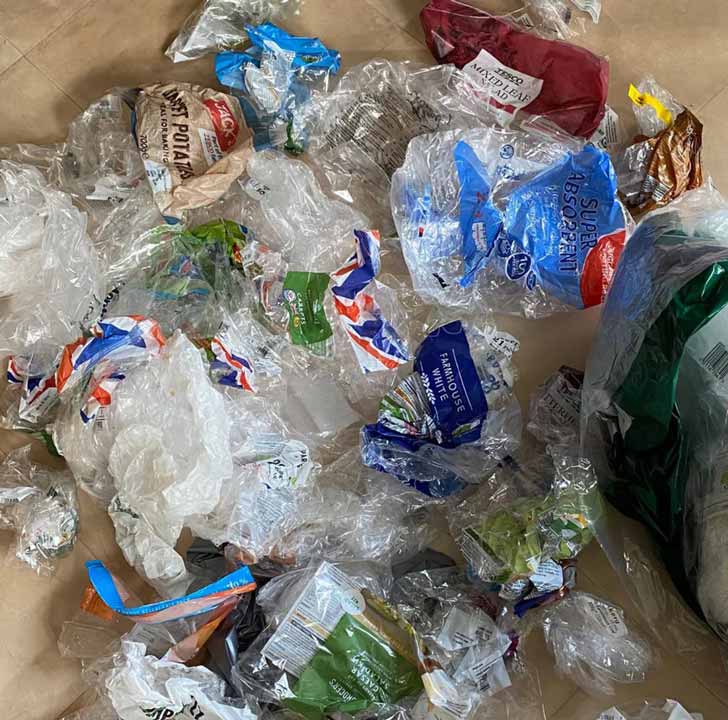
This challenge motivated Texas engineer Ivan Arbouzov to create Clear Drop, a startup dedicated to transforming household waste.
And they’ve just rolled out a breakthrough product: the Soft Plastic Compactor. It looks like a simple stainless steel trash can, but it takes only soft plastics, compacting them into easy-to-recycle blocks.
Here’s how it works: At home, you fill the SPC with everyday soft plastics, like grocery bags, wrappers, or mailers.
Once the bin is full, the device uses heat and pressure to compress everything into “a clean, dense block about the size of a shoebox,” Arbouzov explained to Good Good Good.
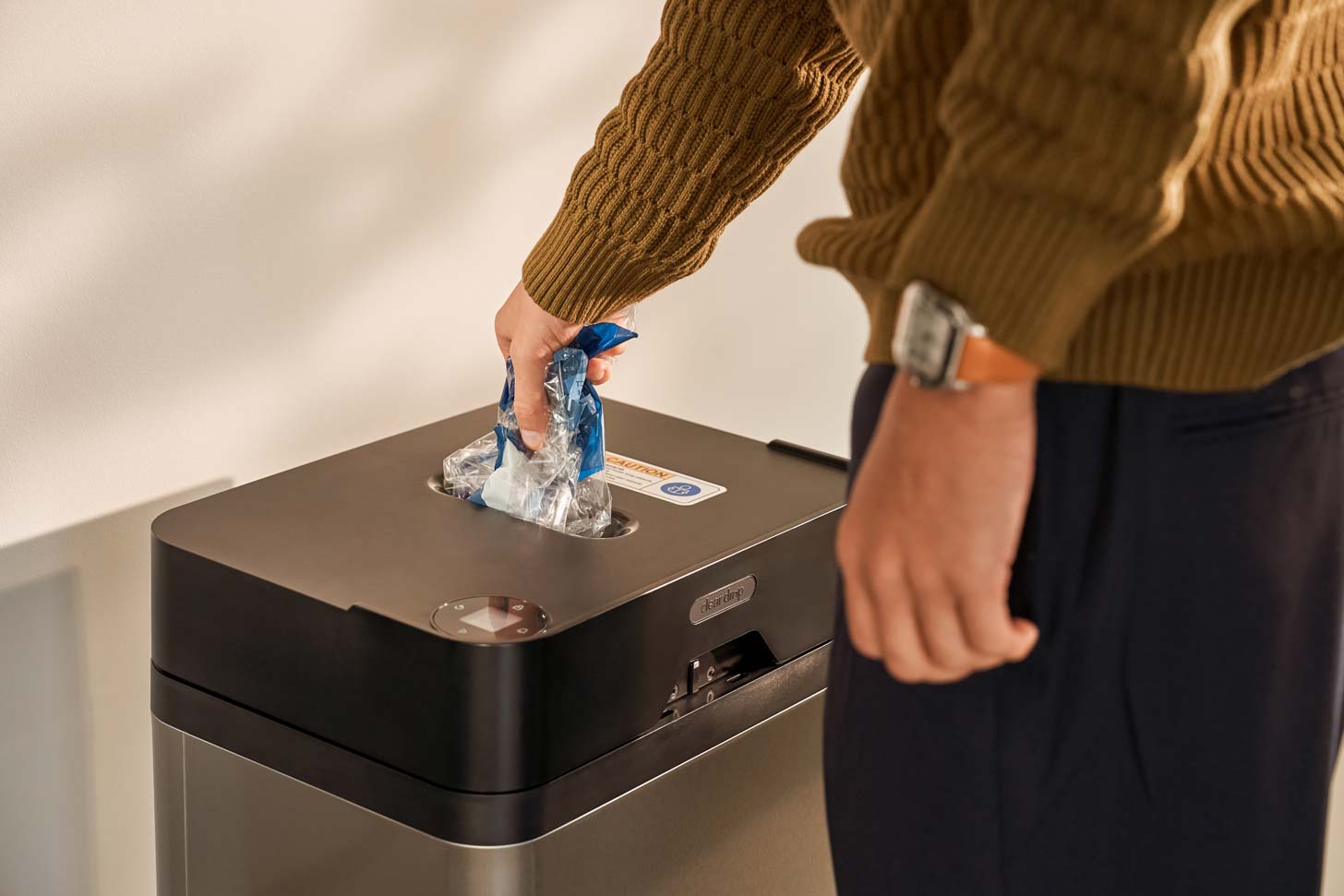
“The plastic is compacted and then slightly heated, using its own packaging properties to bind it into a dense block that won’t fall apart.”
Each block has a prepaid shipping label, so you just send it in the mail, and it goes directly to a verified recycling partner, like Frankfort Plastics, Inc. in Indiana.
Here, the materials are shredded and turned into reusable raw materials and are used to make things like park benches, decking, and waste containers.
“Nothing is landfilled or incinerated, not only for environmental reasons, but because there’s real economic value in these compacted materials,” Arbouzov said. “And importantly, the entire cycle stays within the U.S.”
Arbouzov told Good Good Good the idea behind the device is “pre-recycling,” or the process of preparing recyclables to actually be received and processed accurately and effectively.
“It’s the missing link between household waste and industry that makes sure what’s collected truly gets processed instead of ending up in landfills,” he said.
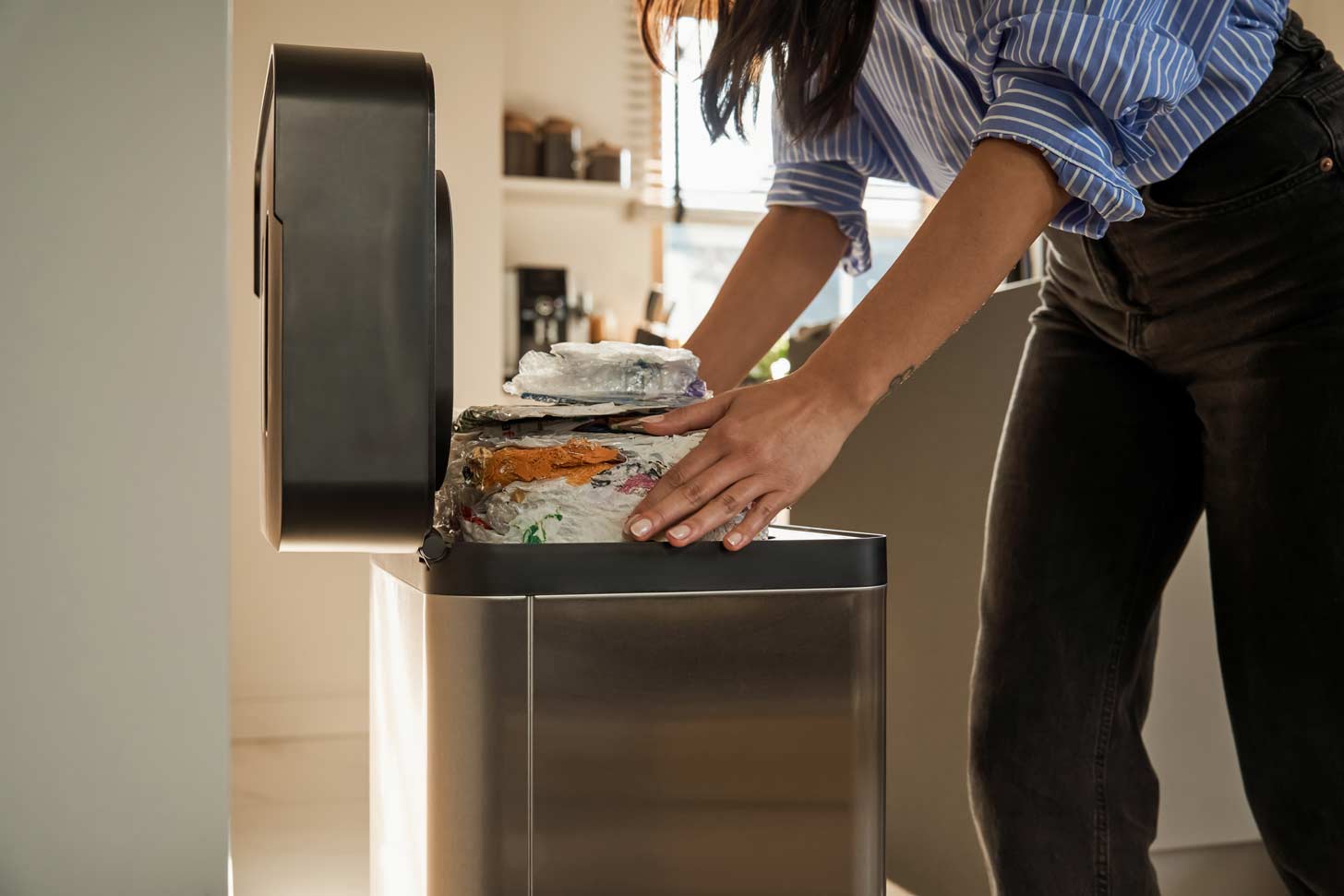
“The current U.S. recycling system isn’t built to handle soft, flexible plastics — they often jam sorting machines and slow down processing. By compacting them into dense blocks, Clear Drop’s SPC turns this tricky waste into something easier for recycling facilities to manage,” David Nix, a Clear Drop recycling expert and professor at the University of Pittsburgh, added in a statement.
Clear Drop’s team of engineers also thought about the collection of soft plastics, noting that it’s hard to collect, store, and transport them throughout their end-of-life cycle.
“They’re simply too light, fluffy, and varied in shape. At every stage, they can easily be lost or blown away by the wind. Transporting them is also an economic challenge — without holding the material together, its density is simply too low,” Arbouzov explained. “We realized that the film must be compacted.”
The SPC does just that, and as Nix added, the device also reduces the amount of “air” being shipped, which means “fewer trips, lower emissions, and more efficient recycling by promoting a circular economy.”
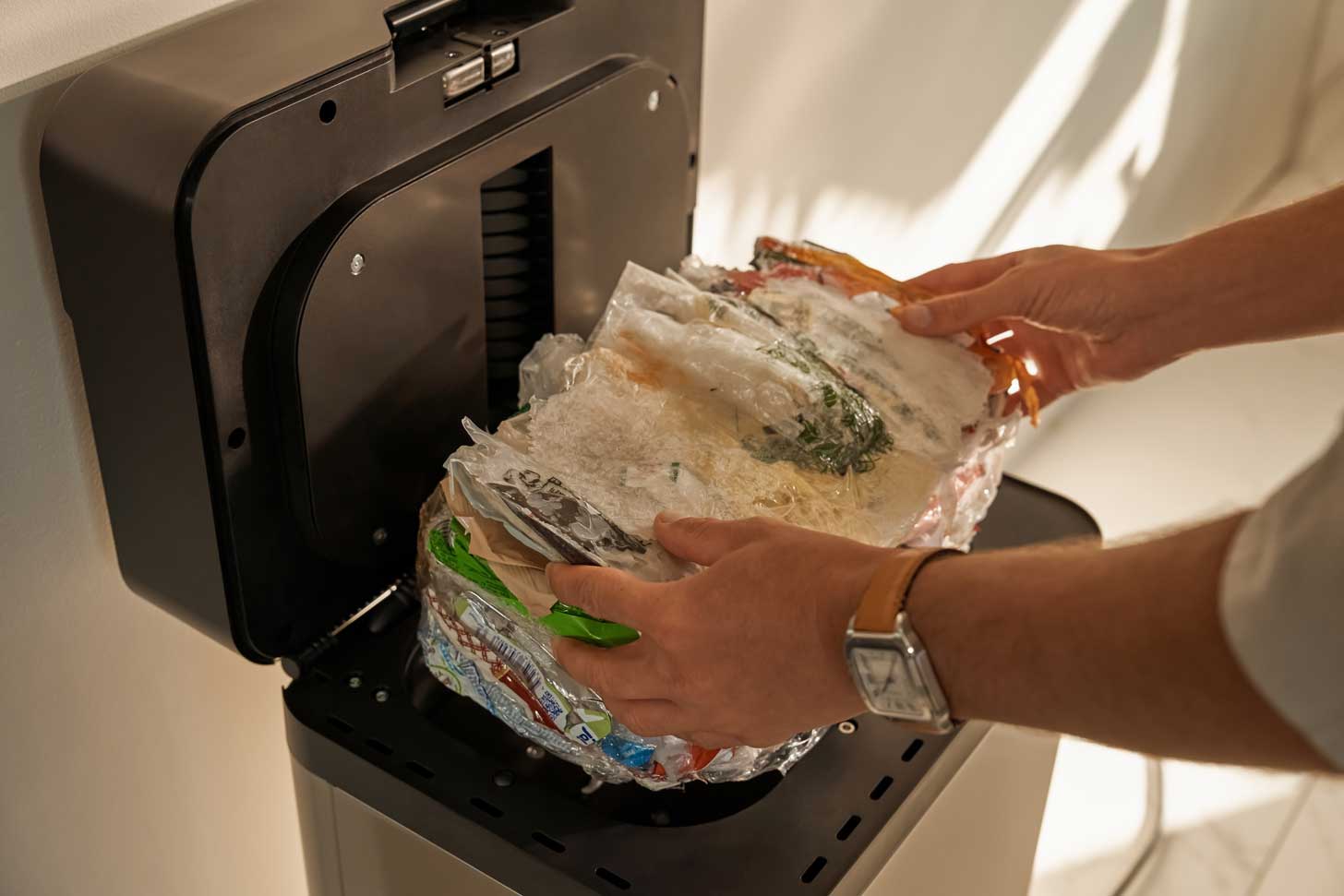
Arbouzov said the SPC is the first product of its kind, adding that if just 1% of U.S. households adopted the new device, nearly 300,000 tons of soft plastic — or about 7.2 billion grocery bags — would be kept from landfills, oceans, and our food chain.
“Beyond numbers, pre-recycling changes how people think about waste,” he said.
“It turns recycling from something distant and confusing into a daily act of awareness and a reminder that every wrapper, bag, and mailer can have a second life if we take the first step.”
Using the SPC at home is “simply convenient,” he added.
While some dedicated people might already collect soft plastics to recycle at specialty facilities in a bag or eco-brick, a press release for Clear Drop claims the SPC compresses waste about 10 times more efficiently than collecting soft plastics in a bag, and can store roughly a month’s worth of waste at a given time.
Another perk is the scale and traceability, Arbouzov said.
“Each block made with Clear Drop is sent to verified recycling partners, where it’s turned back into raw material,” he said. “Not stored, but returned to the production cycle.”
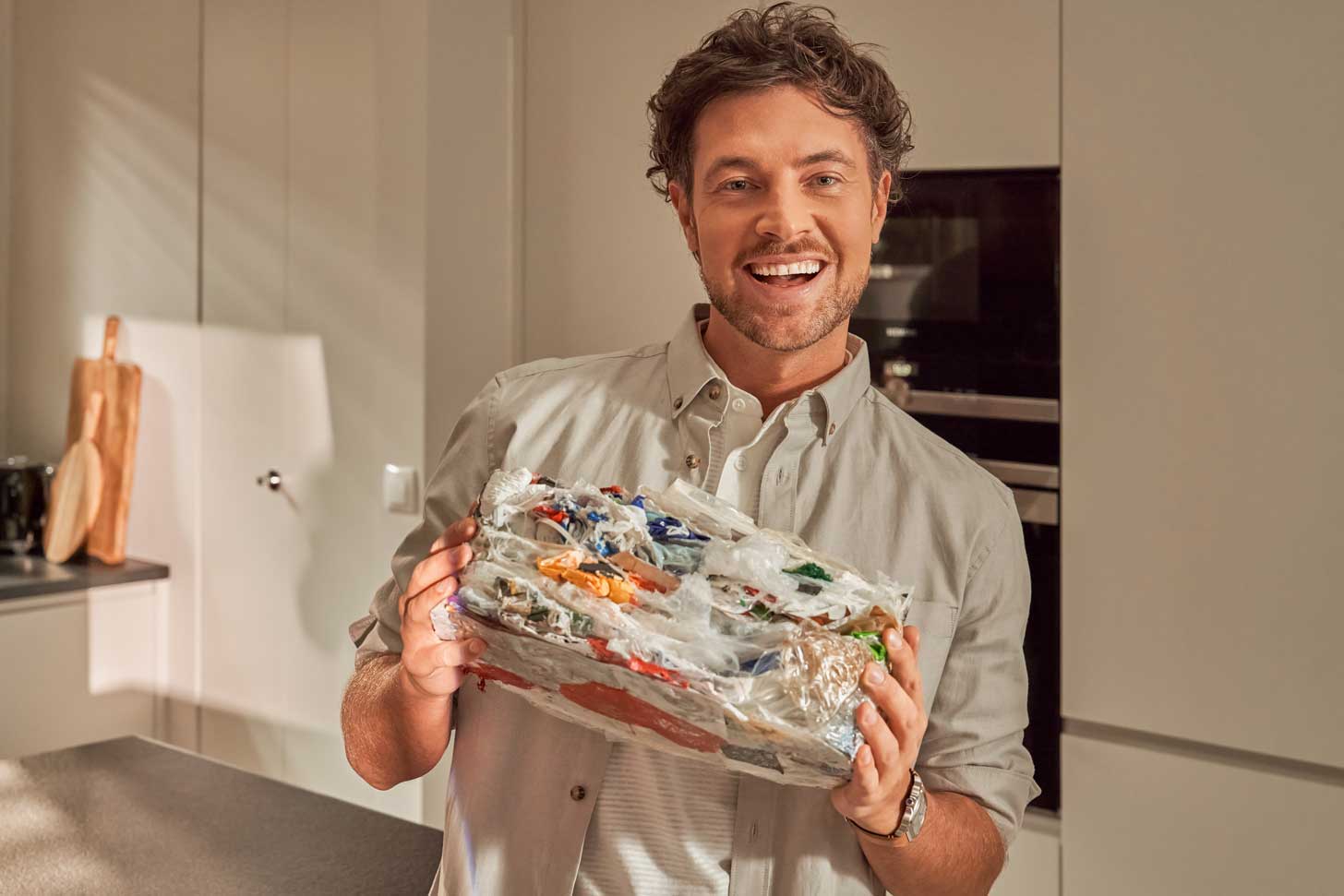
The device itself also runs quietly and efficiently, boasting a 3.3 kWh per cycle rate, equivalent to roughly $0.52 in monthly electricity costs for an average household.
The SPC requires a one-time investment of $200 and then a monthly $50 subscription fee. The $50 monthly plan includes installment payments for the device, recycling pickup, and a full two-year warranty.
Customers will receive three prepaid mailers every quarter — enough to recycle about one block per month — and can schedule pickups anytime.
While it might be a bit of a hefty price tag for some, Arbouzov believes the cost of plastic pollution is already apparent.
“Soft plastic is like sand through fingers,” Arbouzov said. “The only way to catch it is to stop pretending it’s someone else’s job.”
Check out the SCP in action below:
You may also like: This new 'bamboo bioplastic' that outperforms traditional plastic breaks down in just 50 days
Header image courtesy of Clear Drop



